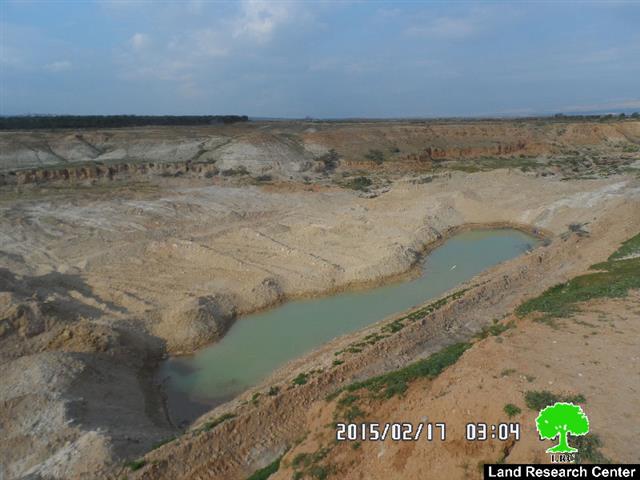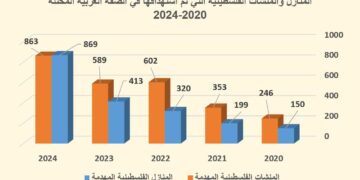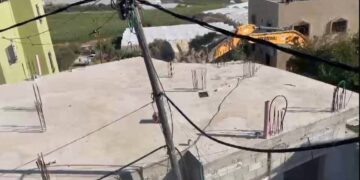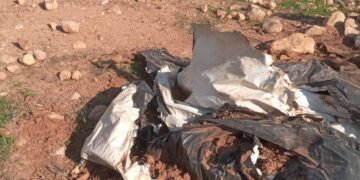Violation: demolishing a water pool
Date: 12/02/2015
Location: al-Matar/ Jericho governorate
Perpetrators: Israeli occupation army
Victims: farmers of al-Nuwai'mih
Details:
A massive force from the Israeli occupation accompanied by a military dozer on February 12, 2015 raided the area of al-Matar , northeast Jericho city and embarked on demolishing a water pool (1500m3 in volume). The pool was implemented by Palestine Ministry of Agriculture and funded by Islamic Bank for Development through the Water Harvesting project; this project aims at providing water to irrigate 180 dunums planted with irrigated crops and palm trees and owned by a number of farmers from the area of al-Nuwai'mih. If demolished, the aforementioned crops will suffer due to the water scarcity the area is undergoing.
It should be marked that the Planning Committee relative to Israel Civil Administration notified the targeted structure with "Stop-work and construction" order in August 2014. The order came under the pretext of "unlicensed construction" within area classified C according to Oslo Accords.
Photo 2: while demolishing
Another pool demolished in Jericho:
In the same context, in it indicated that the Israeli occupation forces on December 24, 2014 demolished a water pool (1500m3 in volume) in the area of al-Sa'ida; the pool was implemented by Palestine Ministry of Agriculture and funded by French Agency for Development AFD to serve around 60 dunums in the area of al-Auja. For further information, please read through the reports issued by Land Research Center (Ar, Eng)
At the same day, the Israeli occupation forces demolished another pool (1200m3) east of al-Jiftlik village; ; the pool was implemented by Palestine Ministry of Agriculture and funded by French Agency for Development AFD to serve around 130 dunums planted with irrigated crops and palm trees. For further information, please read through the reports issued by Land Research Center ( Ar, Eng)
Recent-ancient policy :
The area of Palestinian Jordan Valley (al-ghoor) suffers from water sacristy, which is threatening the sector of agriculture. Farmers have to buy water ( 1.5 INS per 1m3) from the areas of Ein Shibli, Furush Beit Dajan, and Al-Auja to manage irrigating their lands. This is considered a burden on the Palestinian farmer; the idea of water pool came to solve the sacristy problem through catching rainwater to serve 140 dunums located in the nearby.
Since 1967, the Israeli occupation worked hard to confiscate all water resources in the area of al-ghoor for the favor of the nearby colonies. Such colonies flourished at the expense of the nearby Palestinian lands.
Ever since that year, underground and springs' water decreased until dried up. An observer can note how miserable the water tracks of al-Auja area became; rubbish and dirt are on top of the water tracks where they should be a source to serve agricultural lands.
Prepared by
The Land Research Center
LRC















